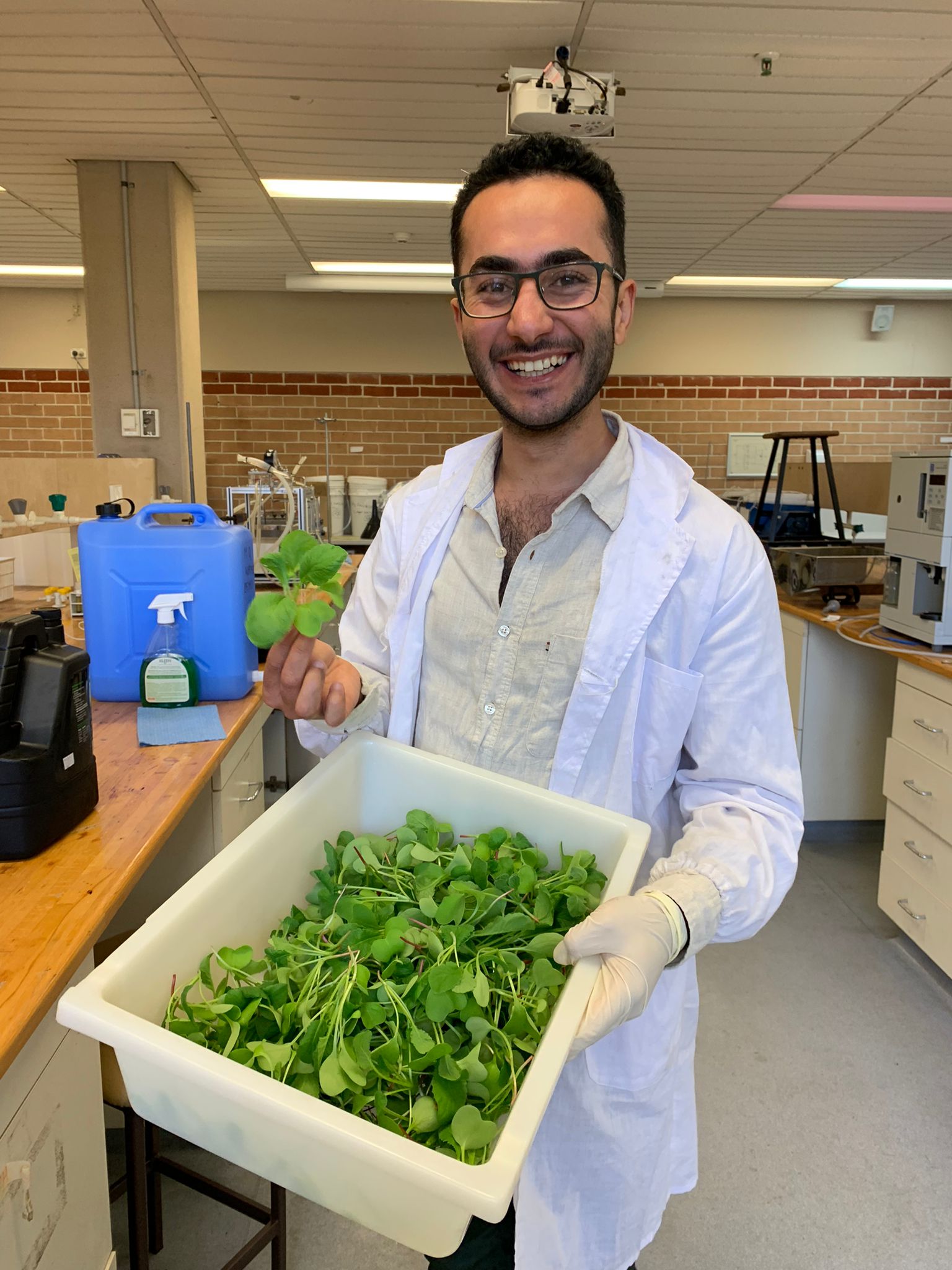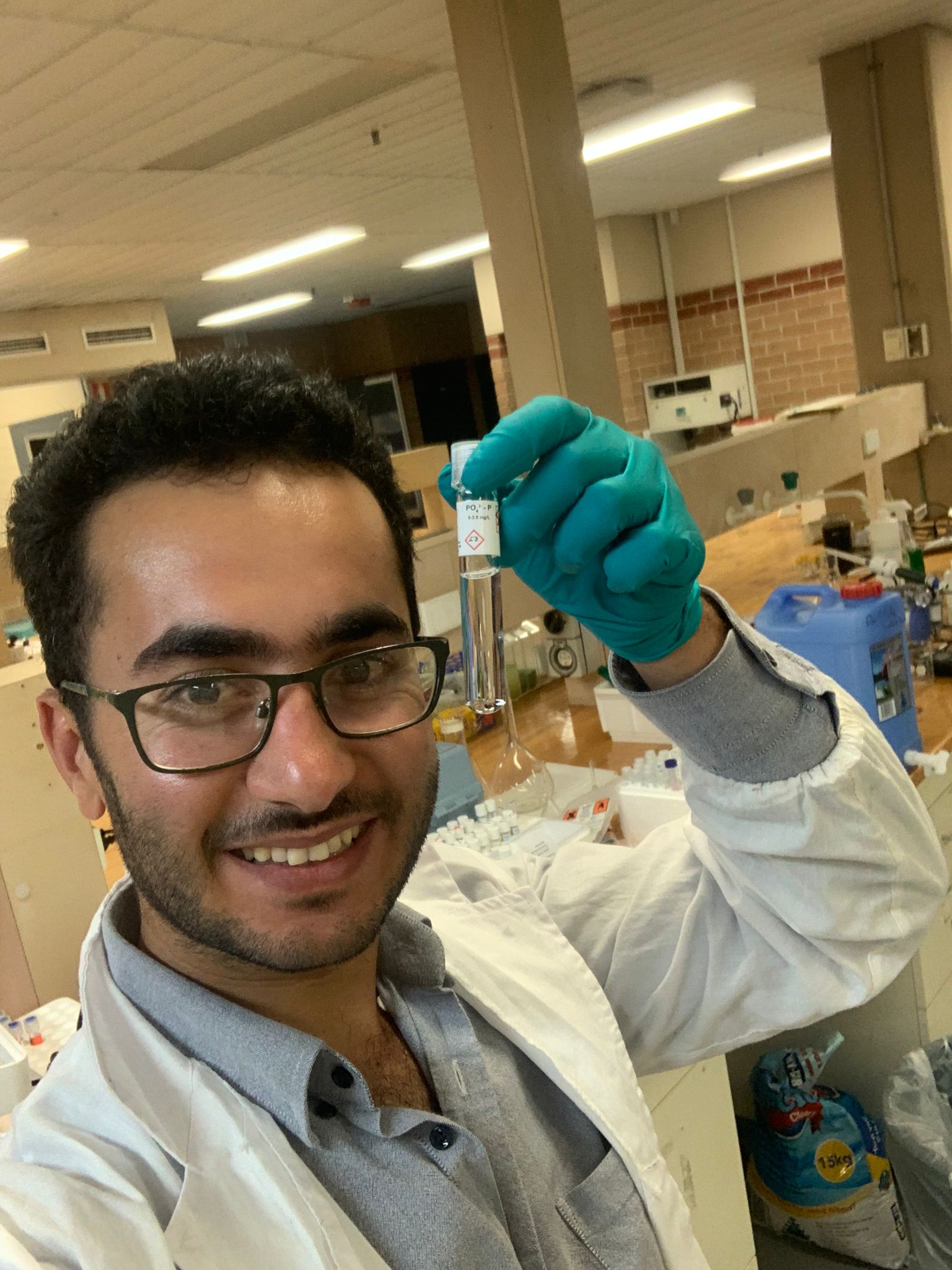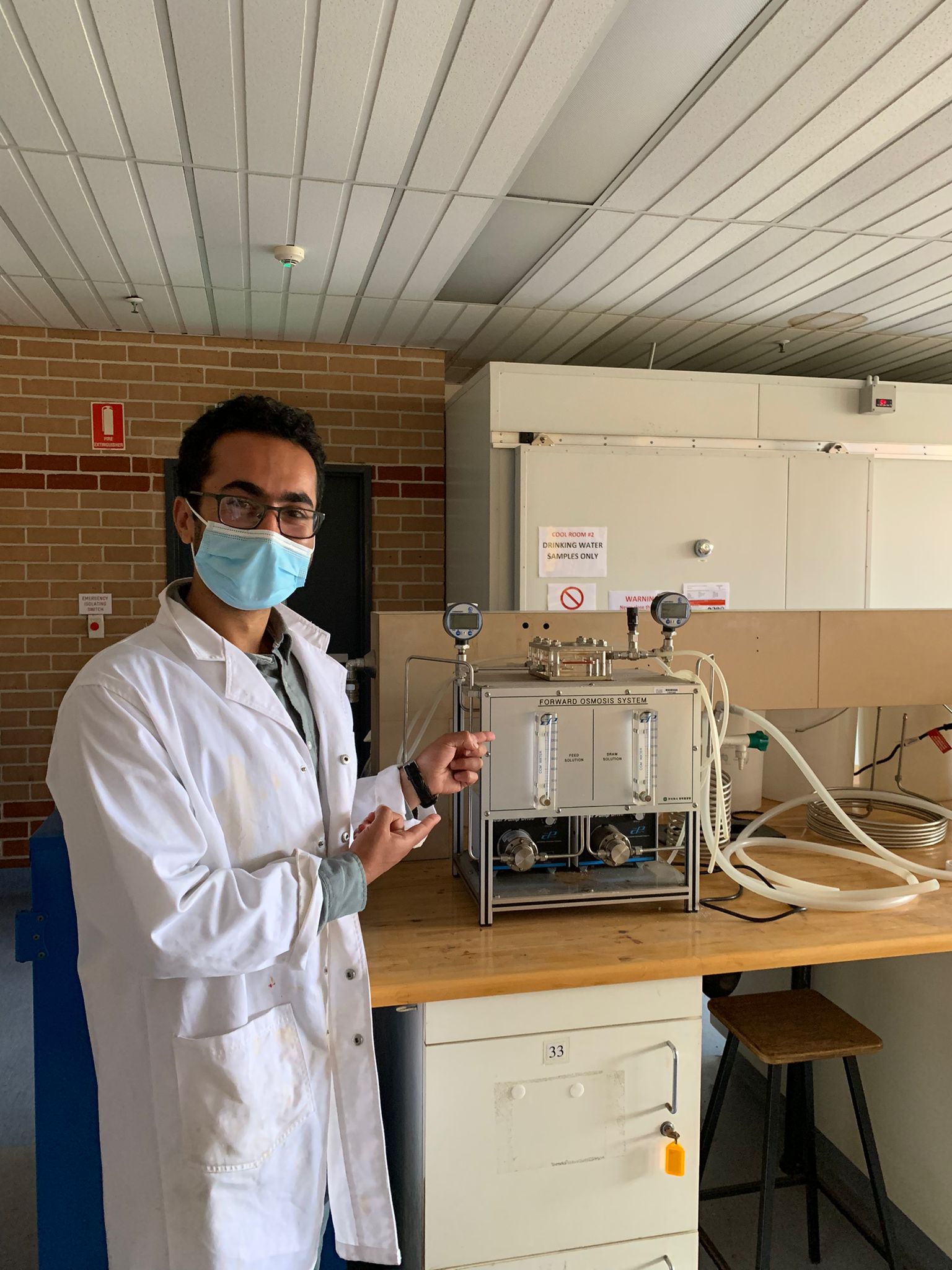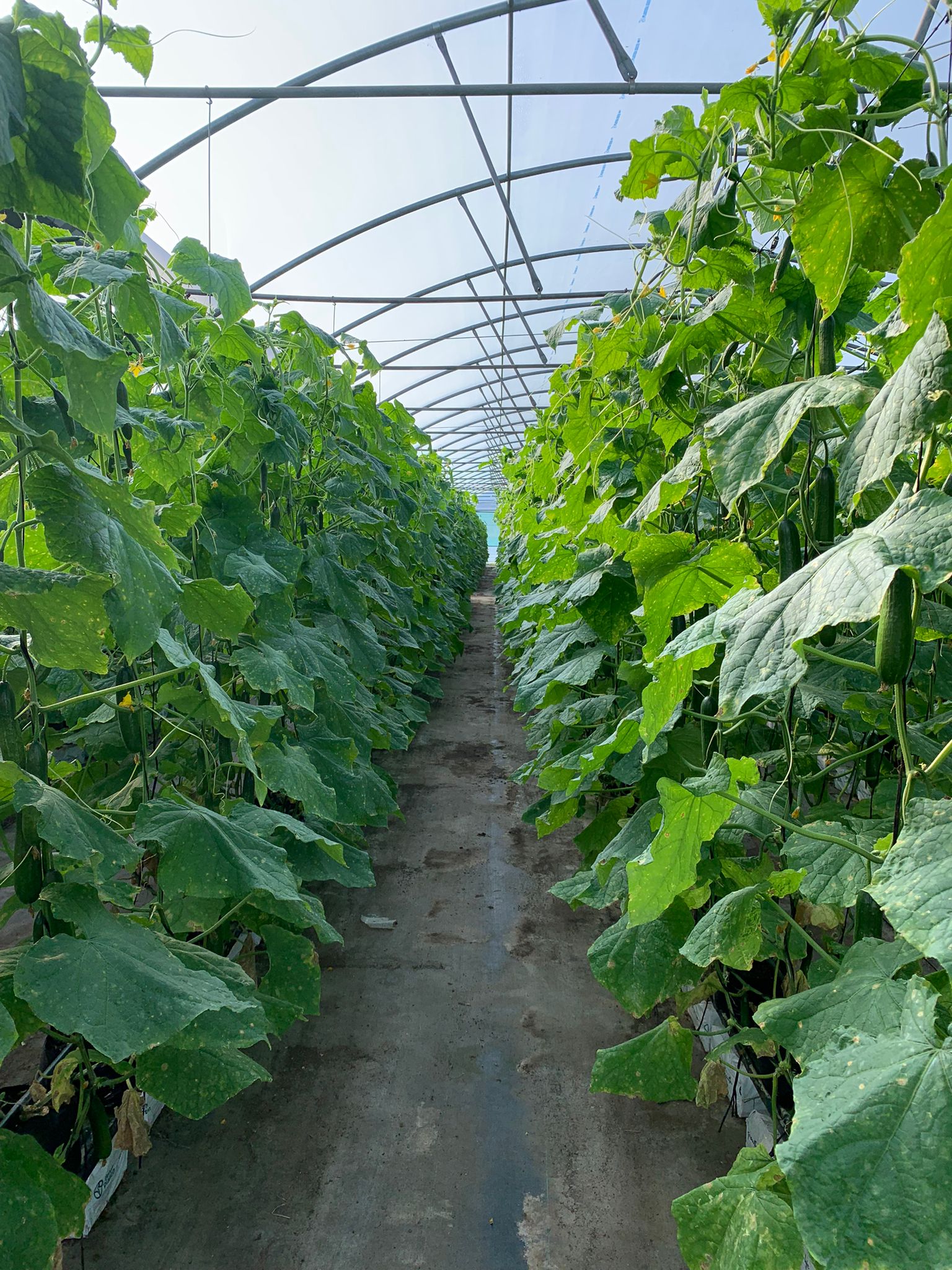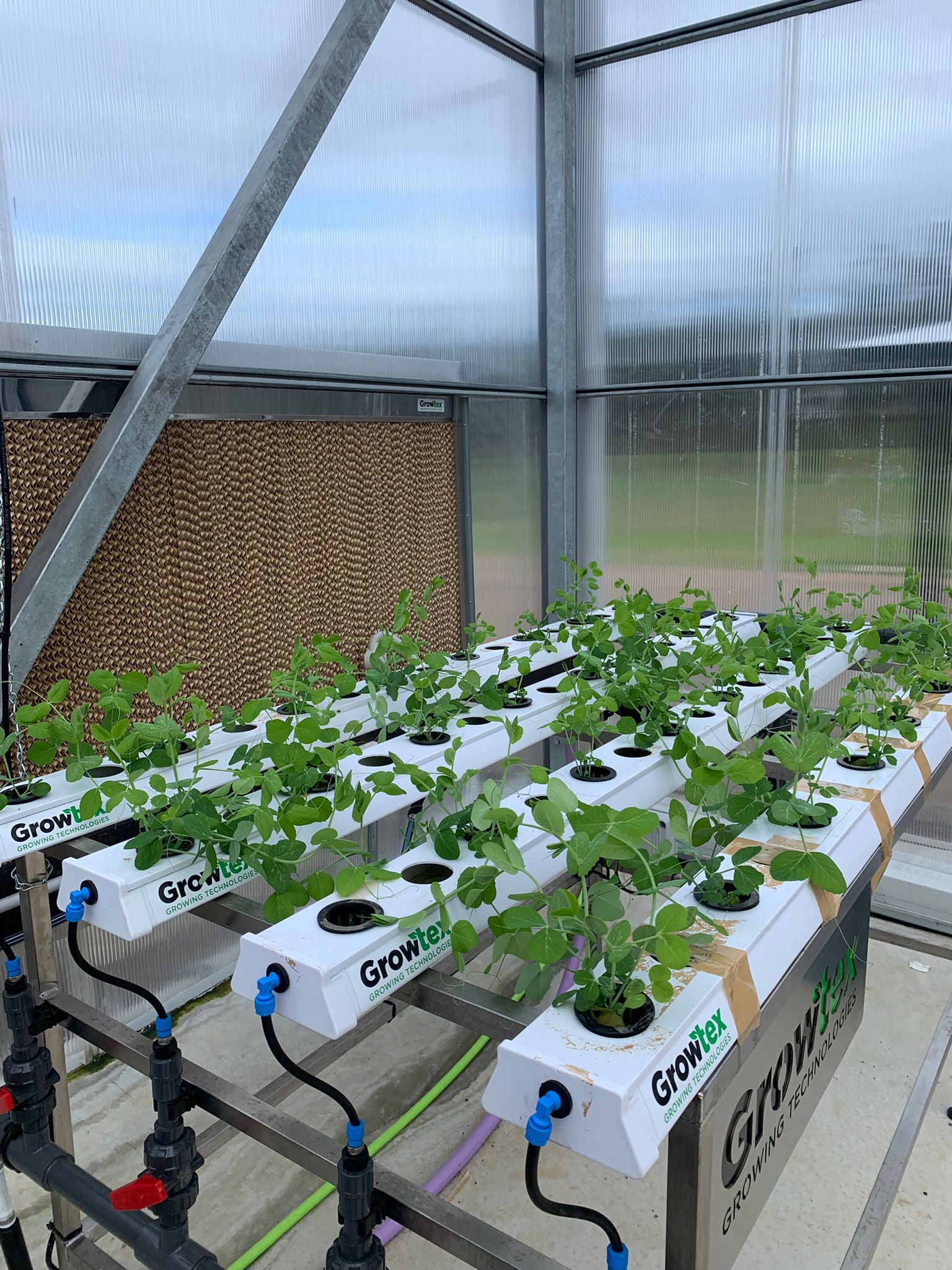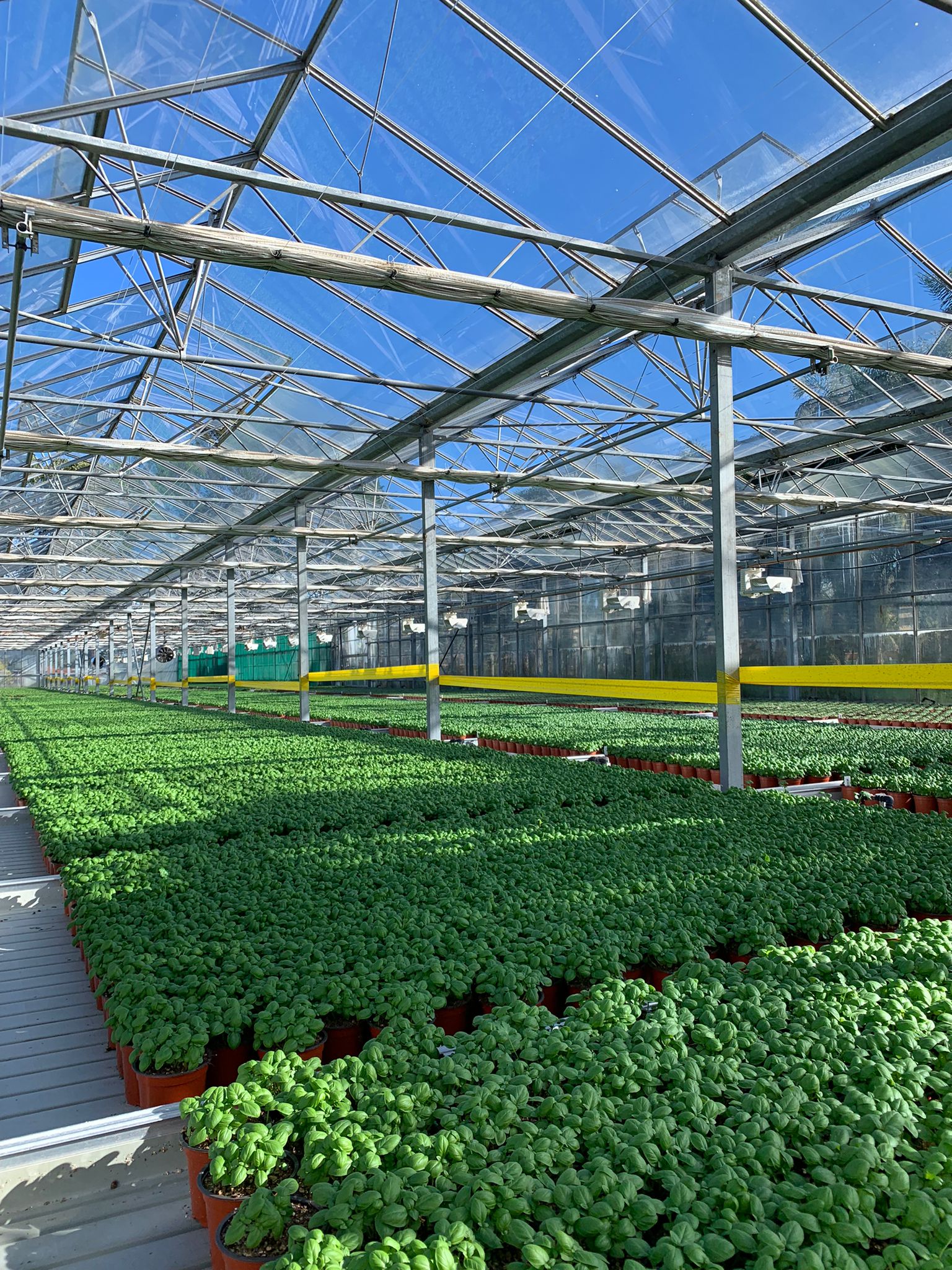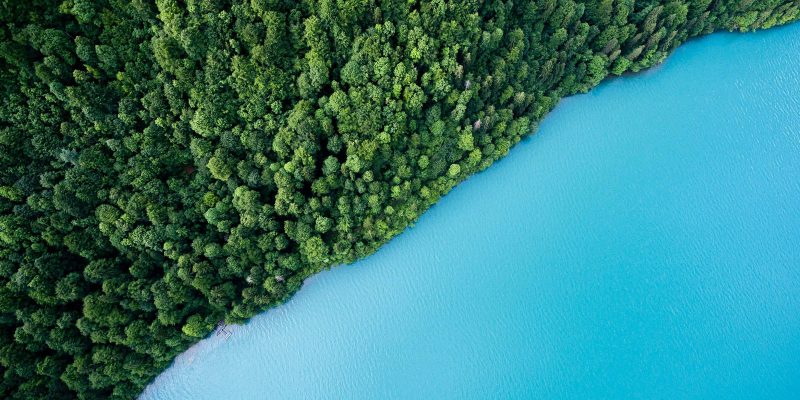When it comes to research and innovation in the water sector, Civil Engineer, Suhaib Malkawi is always raising his hand to find new ways of preserving water for local communities while minimising the environmental impact. His method is quite ingenious – he combines curiosity, knowledge and forward-thinking ideas to develop research that could change tomorrow’s water and agriculture industry landscape. A forever enthusiast, nothing stops him from exploring vast possibilities in this much-needed sector.
Originally from Jordan, Suhaib grew up in a small town surrounded by loving parents, hardship and arid summers. From a young age, he helped his family and worked alongside his father in olive farming, carpentry, wood cutting and charcoal business during the weekends while achieving high marks at school. Suhaib dreamed of a different life and his determination and humbleness took him on a journey filled with excitement.
Suhaib moved to Australia in 2018 with the hope of a better life and work opportunities. For three years, he juggled several jobs at once to self-finance a Master of Philosophy Program in Water Engineering at the University of Western Sydney, which he entered in 2021. He is now a research specialist with a bachelor’s degree in civil engineering from Jordan University of Science and Technology and a PhD scholar at Western Sydney University (engineering – environment, agricultural water, and wastewater), and has gained an in-depth understanding of the water sector through his work across three countries all known for their water scarcity: Jordan, Australia, and India.
As part of his passion for continuous learning, Suhaib has participated in several internships (The International Association for the Exchange of Students for Technical Experience (IAESTE) and The Royal Hashemite Court of Jordan) in India and Jordan, evaluating and improving wastewater treatment and desalination technologies.
“These experiences have deeply enriched my understanding of global water challenges and equipped me with practical solutions applicable to Australian contexts,” he reflects.
Recently, Suhaib was awarded the Australian Government Research Training Stipend Scholarship in recognition of his academic achievements and research quality. Passionate about his practice, he is also an active member of the Nutrient Water and Materials Recycling Group (NeWMaRG), a group of researchers in the water, circular economy and recycling sectors. This platform allows him to share knowledge and discuss research and innovations.
When Suhaib is not devouring one of his favourite meals, Mansaf, the national and traditional dish involving lamb, fermented dried yogurt and rice, he spends most days thinking about overcoming obstacles. Like the complex Mansaf, Suhaib combines unexpected factors to bring innovative ways of solving water-related challenges, introspecting carefully water and agriculture ties. As Australia navigates complex climate variability directly impacting the agriculture sector, sustainable solutions are on the horizon.
During his time at Sequana, Suhaib has applied his advanced innovation, problem-solving and decision-making skills as a Civil Engineer since 2022. He has contributed to the planning and provided project insights for the management of water resources by managing data, drafting key sections in technical reports, facilitating risk assessment workshops, and coordinating meetings for various workstreams.
“This involvement helped create comprehensive water operating plans and water pricing models that promote sustainable water management, prioritise capital projects, and seek efficiency improvements in water operations, ensuring equitable water distribution and cost-effectiveness,” Suhaib said.
Outside of work, Suhaib continues to contribute to the water industry and specifically to research and science knowledge more broadly by providing significant work focusing on restoring phosphorus from hydroponic waste nutrient solutions. That is how his thesis ‘Nutrients Recycling and Water Recovering from Hydroponics Waste Nutrient Solutions (HWNS)’, came about.
Some of his latest research papers, following his thesis, were published in Elsevier’s prestigious Q1 journals, including Resource, Conservation and Recycling (Impact Factor: 13.7) and Resource, Conservation and Recycling Advances. His endless nights spent at the lab didn’t obstruct his optimism, instead, it reinforced his belief that this important work would help farmers and local communities.
“These publications highlight a major step forward in wastewater management and water conservation that will lead to sustainable agriculture and circular economy. More than just a study, this scientific breakthrough will help bridge the gap between environmental challenges, advancement in water technology, global food security and sustainable economy,” Suhaib said.
It all started with Suhaib’s eagerness to contribute to resolving water-related challenges in Australia. He investigated the environmental impact of agricultural wastewater discharge and nutrient runoff, particularly in NSW’s urbanised areas (including Brookvale, Wallacia, Kemps Creek and Rosemore), to address pressing water quality issues in Australia. He came to the realisation that this research is crucial in developing strategies to mitigate the negative impacts of urbanisation on water resources and achieving economic efficiencies for growers.
During his time at Western Sydney University, Suhaib also conducted extensive studies on nutrient management in hydroponics, focusing on optimising nutrient solutions for sustainable utilisation of water and finite nutrients including phosphate.
“This work aims to balance nutrient levels and promote sustainable farming practices that conserve water and nutrients that are extremely scarce and heavily dependent on mining activities,” he explained.
Suhaib then focused on innovating phosphorus recovery from hydroponics waste nutrient solution using chemical precipitation techniques, achieving above 94% phosphorus recovery, and significantly reducing the risk of algae growth in recycled waters.
“I investigated further the use of Fertiliser-Drawn Forward Osmosis (FDFO) technology, an advanced membrane-based technology, for water recovery in agricultural wastewaters. This method achieved up to 93% water recovery (in the form of diluted fertilisers) from the spent wastewater!”
Finally, Suhaib developed and tested a batch-scale pilot-scale studies testing the recovered resources to grow crops in a commercial setup that aligns with Australian horticultural practices. Journal manuscripts are being developed to document and share these findings in the international scientific community.
“Water availability is a critical global issue, demanding innovative solutions for resource efficiency and protection. Indeed, effective water management involves preventing contamination and preserving finite resources, as well as exploring unconventional water and nutrient sources. This is why wastewater recycling is key, as it creates both usable water and protects natural water bodies from pollution,” he concluded.
Unusual ideas that were originally shaped during his work as a farm hand in his early stages can take shape in complex ways and take years to come to life. Challenges can often seem unachievable, especially when pressured by the harmful effects of climate change. It is people like Suhaib who have creative visions and the motivation to transform these challenges into viable solutions, deeply embedded with the country and local community’s needs. Following Suhaib’s steps, recycling agricultural wastewater with advanced treatment technologies will address critical sustainability and environmental challenges and contribute to a more sustainable agricultural sector in Australia.
External links:
- Published Journal Article: Phosphorus Recovery from HWNS and its Economic Potential. Published by Resource Conservation and Recycling, displaying the potential of recovered phosphorus as a viable alternative to commercial fertilisers, October 2024.
- Published Journal Article: A Two-Step Approach to Recycling HWNS Using FDFO and Chemical Precipitation. In-Negotiations with Resource Conservation and Recycling Advances. Published by Resource Conservation and Recycling Advances, displaying the potential of merging FDFO and chemical precipitation for recovering fertilizers and water from spend agricultural wastewater, November 2024.
- Upcoming publication: Circular Phosphorus Management – Developing Sustainable Nutrient Solutions through Hydroponic Waste Recycling – Manuscript under internal review – to be submitted to Agricultural Water Management (November – December 2024).
- Upcoming publication: In-Situ Recovery and Pilot-Scale Application of Calcium Phosphate from Hydroponic Waste Nutrient Solutions an Economically Viable and Sustainable Approach – Manuscript under internal review – to be submitted to Agronomy (January –February 2025).
Follow us on LinkedIn to stay up to date with Sequana’s news and insights.
Acknowledgement
Sequana acknowledges the Traditional Owners of Country throughout Australia and pays respect to and recognises the contribution from their Elders past and present.
